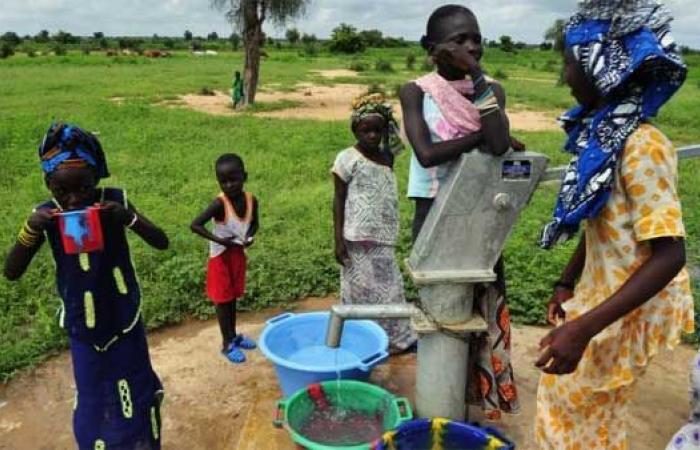“The global water crisis remains alarming: 2.2 billion people, or a quarter of the world’s population, do not have access to safely managed drinking water and 1.5 billion do not even have access to a basic drinking water service, according to the 2023 report of the Joint monitoring program (Jmp) of the WHO and UNICEF. These figures reflect a situation of persistent water insecurity on a global scale.” This is the revelation made by Mboubé Joséphine Carole, spokesperson for the African Alliance of the Federation for Water and Sanitation (Aafea). This structure, in conclave in Dakar, held a workshop with the different structures of the water sector, as well as organizations based in Dakar, for an in-depth discussion to see how to do this to allow this population deprived of water to benefit from this source of life.
Ms. Carole informs that this event, which brought together representatives from nine countries in West and Central Africa, “perfectly illustrates the importance and relevance of African integration in the face of the common challenges of access to water and sanitation.
During the discussions, it emerged from the WHO/UNICEF report that in sub-Saharan Africa, 14% of the population, mainly women, spend more than 30 minutes a day collecting water. Conflicts aggravate the situation, thus making access to water and sanitation even more difficult, as in Burkina Faso where insecurity has displaced 2 million people, including 53% women, as of March 31, 2023. S When it comes to sanitation, only 24% of the population in sub-Saharan Africa have access to safely managed sanitation services.
Faced with this alarming situation, Civil Society Organizations (CSOs) have decided to play an essential role not only to guarantee the effective recognition of the right to water and sanitation as fundamental human rights by States ( politically and legally at the national level), but also to ensure the realization of these rights at the national and local levels.
For stakeholders, in many States, human rights linked to water and sanitation remain insufficiently recognized or applied, due to lack of political will, effective enforcement mechanisms and due to security crises.
Aafea member collectives recommend that States integrate these rights into legal frameworks, implement them through decrees, establish monitoring mechanisms and adopt inclusive plans based on non-discrimination and universality, in targeting vulnerable populations. A Human Rights-Based Approach (Abdh) is necessary to guarantee universal access to water and sanitation and contribute to lasting social peace.
The latter ask to allocate appropriate, sufficient funding, meeting the real needs of the communities. “Funding for drinking water, sanitation and hygiene is, in some cases, insufficient or poorly prioritized in national budgets, with even less attention given to sanitation and hygiene. Aafea member collectives have asked States to mobilize and allocate sufficient, transparent and adapted funding to the needs of the water, sanitation and hygiene sector, aiming for at least 3% of the national budget. We recommend that they communicate regularly on these allocations and exploit innovative sources such as public-private partnerships, climate financing and international cooperation. Finally, it is necessary to work to strengthen the traceability of financial flows and to remove obstacles hindering the execution of resources.
Still in the discussions, the collectives insisted on good governance of the sector, integrating citizen participation and accountability. According to them, the absence of solid governance in the water and sanitation sector leads to abuses such as a vague distribution of responsibilities, a lack of transparency, the absence of regulation and dialogue between actors, as well as and low participation from the public and civil society. “User-citizens must be involved in consultative and decision-making bodies at all levels. The roles of institutions and local authorities, key players in development, must be clarified and articulated. States have the obligation to promote multi-actor dialogue platforms and to strengthen the technical and operational capacities of actors to harmonize and optimize actions in the sector. We are convinced that the realization of these messages will lead to the realization of the human rights to water and sanitation. We hope that the Minister will appreciate and bring these messages to African and global decision-making bodies on water and sanitation,” underlines Aafea.
[email protected]






